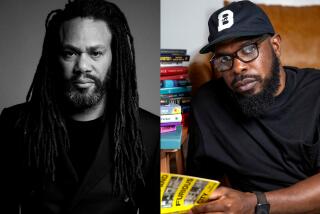SHELF HELP : Needle in a Slush Pile
- Share via
It’s your secret fantasy, admit it.
After years of pecking away on the keyboard, you finally finish that Great American novel or memoir and ship it off--all 700 pages of it, double-spaced--to a New York publishing house. Then comes the call that changes your life.
“We think you’re a genius and your book will be a bestseller,” says some guy in a bow-tie. “Your check for 1 million dollars is in the mail.”
Well, dream on. Your chances of getting an unsolicited manuscript read these days, let alone published, are extremely slim. Most of the large publishers won’t accept them, and they cast an equally dubious eye on authors who send in book proposals or synopses without the help of a literary agent.
Random House is one of the few mega-firms that still reads free-lance manuscripts. They land every day in the so-called “slush pile,” collecting under a dark stairway near the receptionist’s desk, and editors sift through them in hopes of finding a gem.
Submissions run the gamut from bodice-ripping fantasies to the confessional dramas of Vietnam Veterans. Self-improvement manuals abound, along with religious poetry, pulp science fiction and epic family histories.
“You may discover a winner, who knows?” says Harold Evans, president of Random House. “The odds are against it, but it’s worth a look.”
At his direction, young editors gather monthly in the conference room, order in pizza and divvy up the mail. Their mood is festive, but efficient.
“It’s a bacchanal of slush,” says editor Jonathan Karp. “And there’s a general rule: You may be innocent until proven guilty on the outside, but in here writers are presumed guilty unless they convince us otherwise. Unless the first few pages are really good, they’ll go right back to the author.”
Some decisions are easy. Page Dickinson, a marketing coordinator, quickly rejected a sex manual with illustrations provided by the author.
“The drawings weren’t good,” she explains. “No expertise whatsoever.”
Other decisions are tougher, because some folks send in highly personal manuscripts, baring their souls to a bunch of strangers in New York.
“People think writing is easy, and it isn’t,” says editor Enrica Gadler. “You have an intimate encounter with them (in the slush pile) and they throw their heart and soul at you. Then you have to turn them away.”
The rejection rate runs 99% or higher. But sometimes lightning strikes.
Ask Mary Cahill, a suburban teacher, who was told by several agents and publishers that her novel “Carpool” was amusing but not marketable. Then she sent it to the Random House slush pile, and editor Jennifer Ash was impressed.
Eventually, the company gave Cahill a $10,000 advance and went on to sell more than 13,000 copies, which is quite good for a first novel. Today, the Maryland-based author has an agent and is working on three new book projects.
“I tell people what I told myself,” she says with a laugh. “You have to be crazy and persistent. Never give up, even though it’s a one in a million shot. If you’re happy with those odds, you, too, can be a published writer.”
More to Read
Sign up for our Book Club newsletter
Get the latest news, events and more from the Los Angeles Times Book Club, and help us get L.A. reading and talking.
You may occasionally receive promotional content from the Los Angeles Times.










